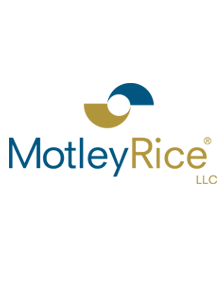
SEC’s proposed rules are bad news for whistleblowers | Causes, Not Just Cases®
by: Motley Rice
On June 28, 2018, the Securities and Exchange Commission (SEC) voted to propose rules that would amend the implementation of the whistleblower program rules. These changes include expanding the types of resolutions covered by the program, giving the SEC discretion in modifying awards, eliminating potential double recovery, adjusting the claims review process, and barring individuals who submit false information or make repeated frivolous claims.
The most contested proposed amendment is giving the SEC discretion to adjust whistleblower awards. As stated in the Whistleblower Program Rules, the SEC is authorized by Congress to provide monetary awards to eligible individuals who come forward with high-quality original information that leads to an SEC enforcement action in which more than $1,000,000 in sanctions is ordered. The range for awards is between 10% and 30% of the money collected.
The amendments propose giving the SEC discretion to adjust downward potential awards that could result in sanctions of more than $100 million.
If this amendment went into effect, the SEC would have the discretion to modify downward potential awards that could result in total monetary sanctions of more than $100 million so that the amount does not exceed “what is reasonably necessary to reward the whistleblower and to incentivize similarly situated whistleblowers.” The award amount, however, would still be subject to a statutory minimum of 10% of the total monetary sanctions and under the proposed rules could not be adjusted below $30 million.
The SEC’s justification for this amendment is that the SEC “may find itself faced with the possibility of paying out significantly large awards that are in excess of the amounts appropriate to advance the goals of the whistleblower program.”
Implications for whistleblowers
Congress determined the award structure under the Whistleblower Program and I believe the SEC should not be in a position to arbitrarily decrease an award. Not only that, I fear placing such an arbitrary cap on awards could discourage whistleblowing. As whistleblowers often put their careers on the line to blow the whistle on fraud, the SEC should not be in a position to quantify the hardships whistleblowers face. Moreover, whistleblower awards are also calculated to compensate whistleblowers for the harms they may suffer – such as retaliation – which could severely limit a whistleblower’s future income.
Due to the strong opposition to the proposed rule change from whistleblower advocates, including Sen. Chuck Grassley (R-IA) and Sen. Ron Wyden (D-OR), as well as whistleblower attorneys, SEC Chairman Jay Clayton canceled the SEC’s meeting to vote on the proposed rule changes indefinitely, which had been scheduled for Oct. 23, 2019. In doing so, the SEC said it anticipates undertaking further consideration of adopting the amendments to the whistleblower rules in the near future.
As stated by Chairman Clayton in a speech on Nov. 15, 2019:
“We proposed amendments designed to improve the efficiency and effectiveness of our whistleblower program. The amendments were largely designed to allow us to get money into the hands of more whistleblowers faster. One aspect of that proposal has received significant attention: a proposed framework to guide the exercise of discretion by the Commission in the case of awards over $30 million. This proposal was mischaracterized by some as a “cap.” The proposed provision was not a “cap,” it could not and was not intended to operate as a “cap,” and I do not support a cap. Congress vested in the Commission the authority and responsibility to use our good judgment and experience to determine award amounts within the range of 10-30% prescribed by Congress, and we should do just that.”
We can only hope that Chairman Clayton sticks to his words and does not harm a program as successful as the SEC’s Whistleblower Program in rooting out pervasive fraud that harms the investing public.
Authored by Rebecca M. Katz, a Motley Rice attorney from 2012-2015 and 2019-2025.
Subscribe to our blog if you’d like to have more content like this sent directly to your inbox.